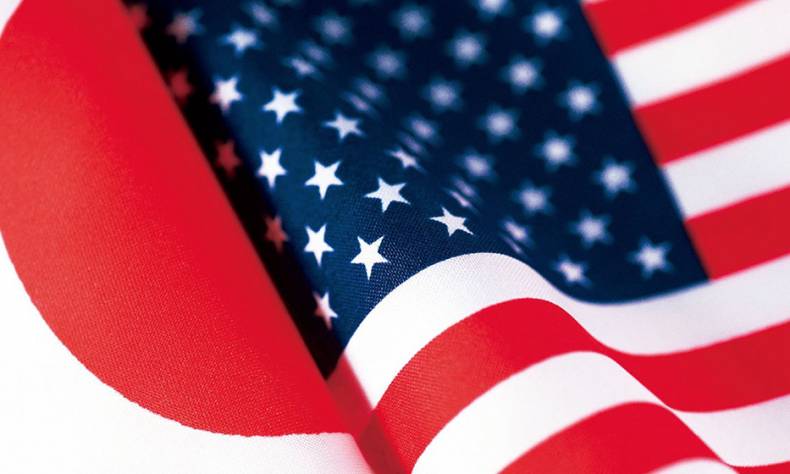
Will Japan Stands with America on Sino-U.S. Trade Friction?
As the United States and China confront each other on trade, other countries are looking to take advantage.
As the United States and China confront each other on trade, other countries are looking to take advantage.
On April 6th, Japan’s Kyodo News quoted unnamed sources as saying that Japan had notified the World Trade Organization that it intends to join as a third party the lawsuit filed by the United States alleging that China infringes intellectual property rights. The source said that if China and the United States approve Japan’s participation, Tokyo will be able to express its view during the WTO negotiations.
The news from the Japanese media immediately attracted extensive attention and raised afresh arguments such as “Japan will assist the US in its trade war against China” and “Japan has joined the US team”. However, an analysis of the trade relationships between China, the United States and Japan makes it clear that this should be an individual case. Japan will be the biggest victim should a trade war between China and the United States really begin. Although Japan is singing from the United States songsheet, it is unlikely to take practical action.
Japan’s Relationship with the US Rules out this Possibility
First, Japan’s own relationship with the US determines that Japan cannot become a US teammate.
At present, Japan ranks second only to China among US trade creditors. This has deeply vexed Trump for a long time. Even during the visit to Japan in November 2017, Trump persisted in pointing out at gatherings of Japanese and US economic figures that “there is a trade deficit of US$70 billion every year between the United States and Japan. Trade between the United States and Japan is unfair. It is also not open!”
In February this year, Japan experienced a large trade surplus of more than US$20 billion owing to exports of hybrid vehicles to the United States, which made Trump even more exasperated.
As Trump escalating his trade war threats, Bloomberg has clearly stated in a report that Trump has taken special note of another country that profits at United States expense – the indications are that he means Japan.
The European Union, Australia, and even South Korea been admitted to the tariff exemption list for steel and aluminum products in the United States, but Japan has not, which confirms the speculation.
Therefore, as long as the huge trade deficit exists, the United States will not leave Japan in peace. In these circumstances, Japan will not benefit from following the United States in any trade war, but could suffer if China were to be disadvantaged. I believe the Japanese government can figure this out for themselves.
More Sino-U.S. Trade Friction will Hit Japan Directly
Second, from the perspective of China-US trade relations, Japan will suffer direct damage due to the Sino-US trade war. If Sino-US trade friction escalates, Japan will not be shielded from collateral damage.
At present, 40 cents of every dollar of China’s exports to the United States are components imported from other countries. 7 cents worth are directly imported from Japan, in terms of products such as semiconductors, LCD screens, and other electronic products.
In other words, if the United States imposes a 25% tariff on 60 billion U.S. dollars of Chinese products, it means that a 25% tariff will be levied on the 4 billion U.S. dollars Japan exports to China.
In addition, there are many Japanese companies that have set up factories in China and export their products to the United States. They will also suffer huge losses in any Sino-US trade war.
Japan is more deeply involved in the Sino-US trade system than most other countries, and a Sino-US trade war will result in huge direct losses to Japanese companies. From this point of view, Japan has no reason to add fuel to the Sino-US trade war.
Japan will not Take Sides due to Sino-Japanese Trade Relations
Finally, the Sino-Japanese trade relationship indicates that Japan will not take sides in the Sino-US trade war.
According to the statistics of Japan Customs, Japan’s top two exporter destinations in 2017 were the United States and China, and Japan’s exports to these two countries reached US$134.79 billion and US$132.86 billion respectively, representing year-on-year increases of 3.6% and 16.7%, and accounting for 19.3% and 19.0% of Japan’s total exports.
The statistics indicate that the amount and proportion of Japan’s exports to China and the United States are basically the same. China and the United States stand as two pillars of Japan’s foreign trade. In fact the growth rate of Japanese exports to China is more than four times than that of the United States. Should Japan stand on the side of the United States in a trade war between China and the United States, it will certainly suffer sanctions from China.
Therefore, the nature of the trilateral trade relationship between Japan, the United States, and China suggests that Japan has nothing to gain from joining the US team in a Sino-US trade war. Japan’s echoing of the United States position on “protection of intellectual property rights” is empty talk. Japan may imagine that once China concedes in the Sino-U.S. trade war, it will benefit because of its support towards the Unites States. However, such idle dreams will certainly be shattered by a resolute Chinese counterattack.
Jiang Feng is the editor-in-chief of JNOCNEWS
Editor: Cai Hairuo
Opinion articles reflect the views of their authors, not necessarily those of China Focus
 Facebook
Facebook
 Twitter
Twitter
 Linkedin
Linkedin
 Google +
Google +










